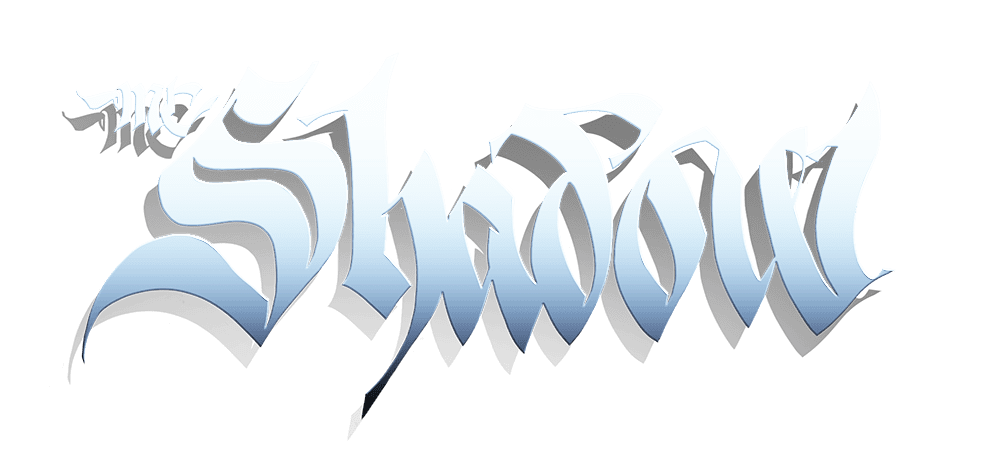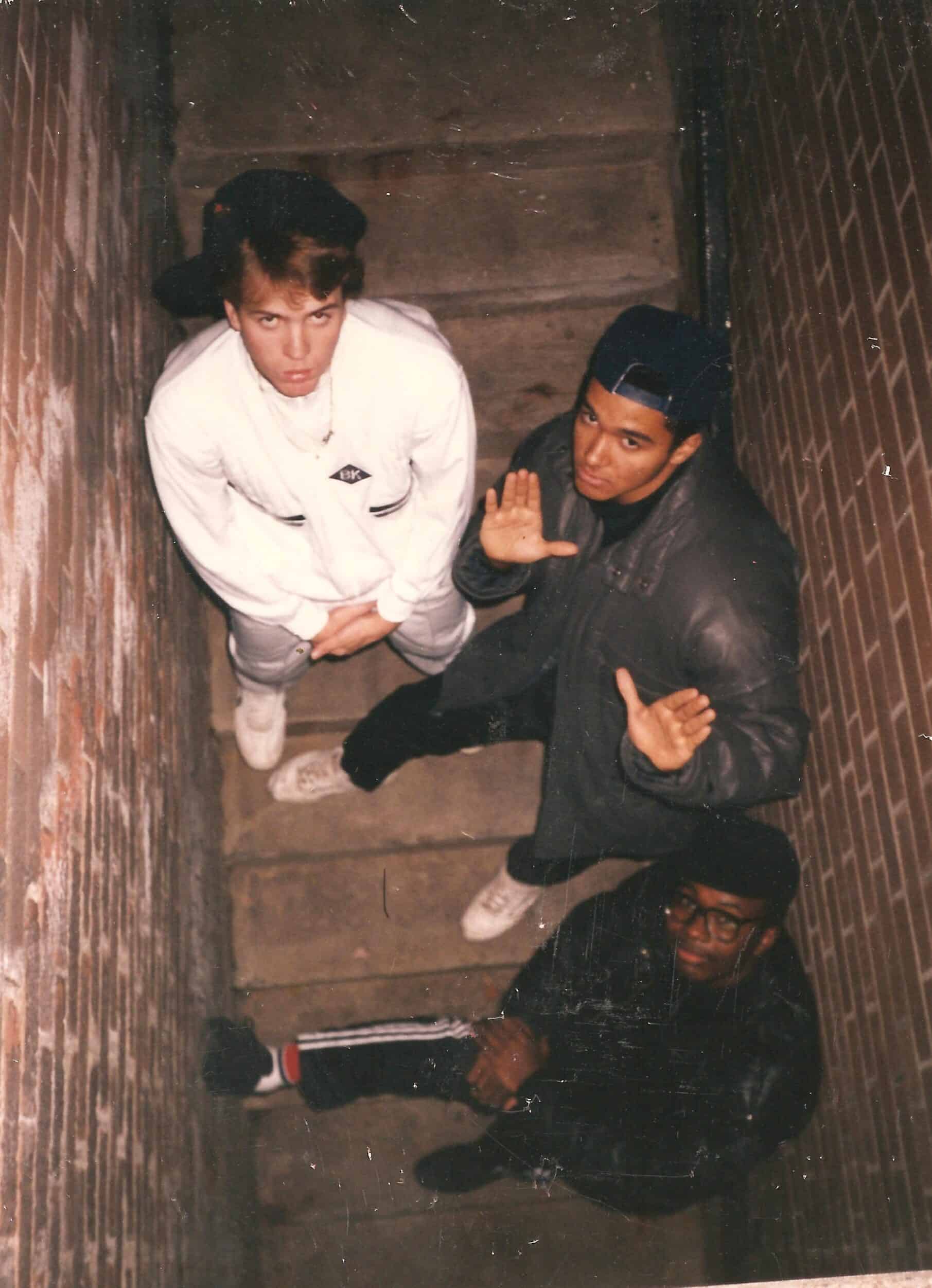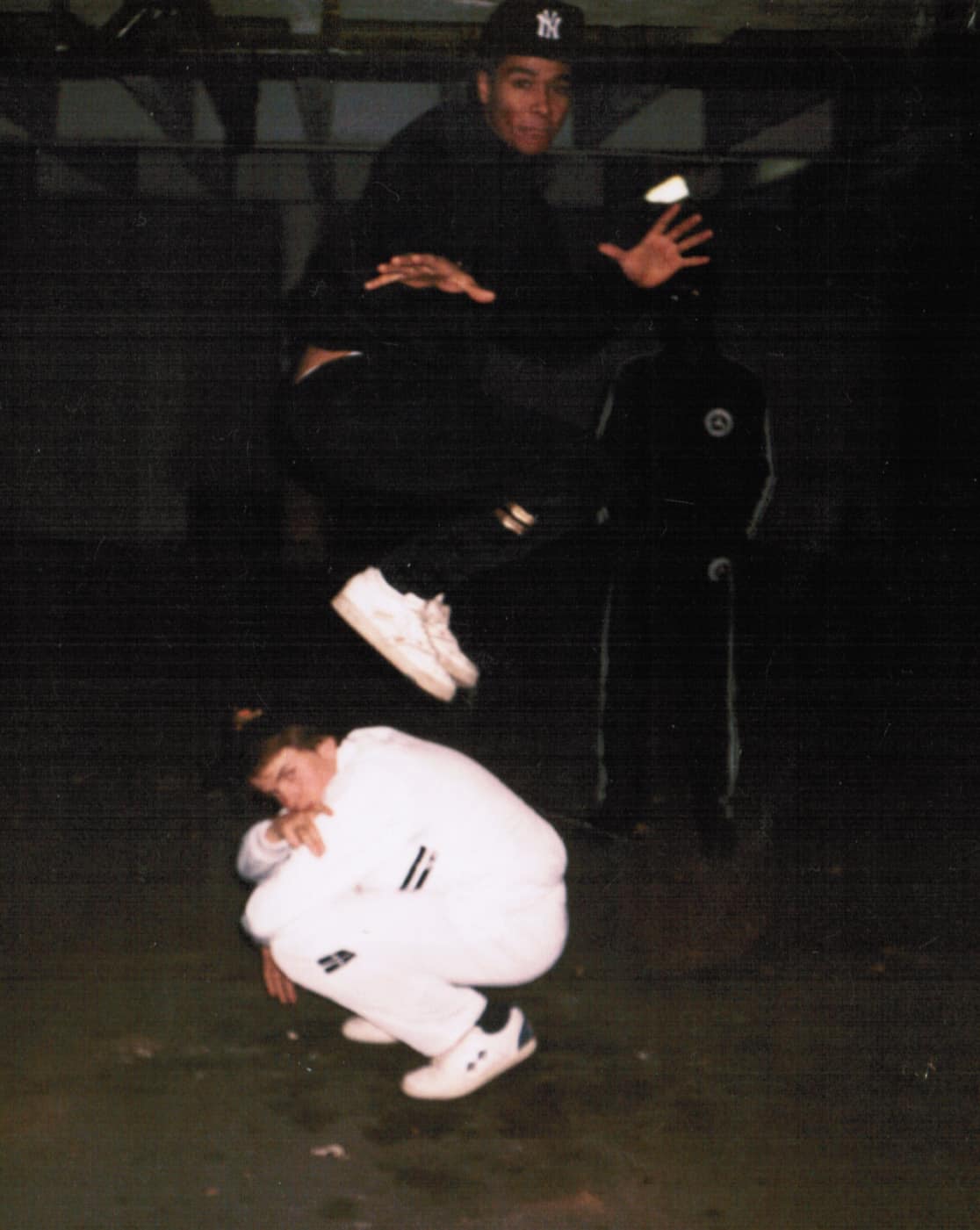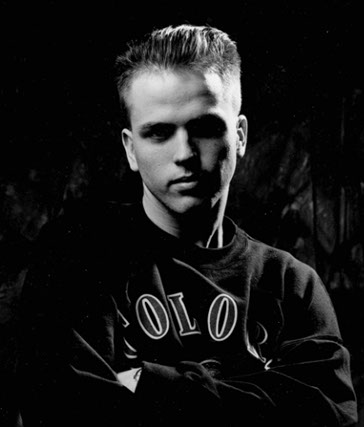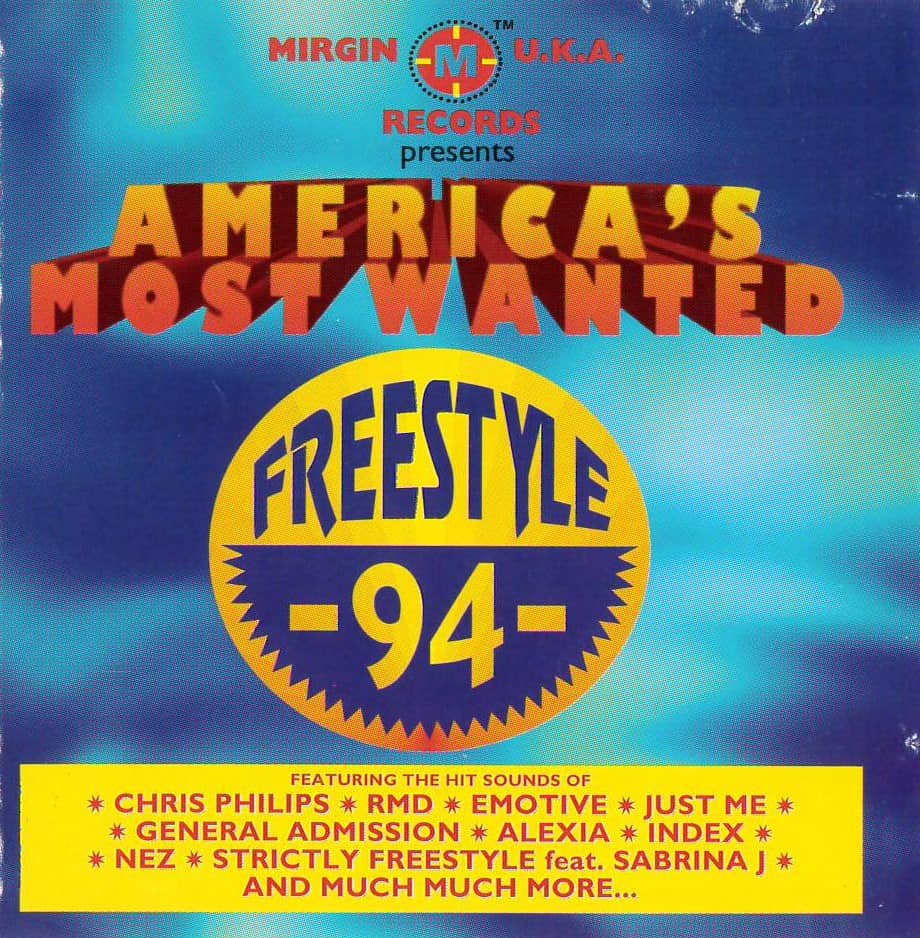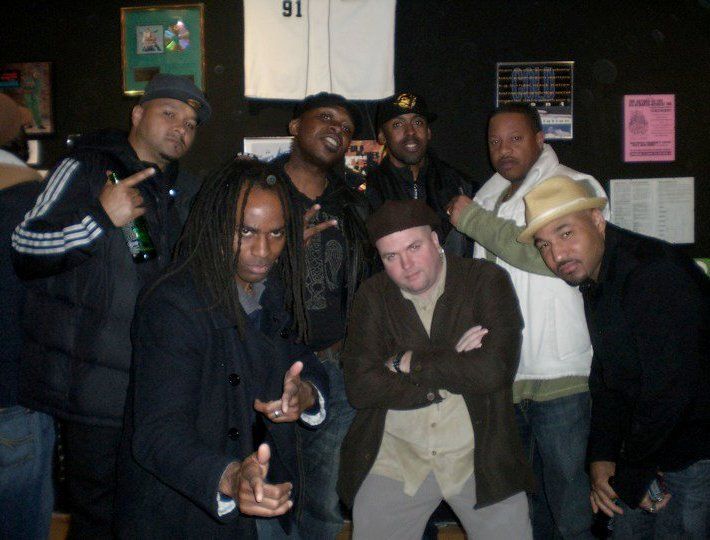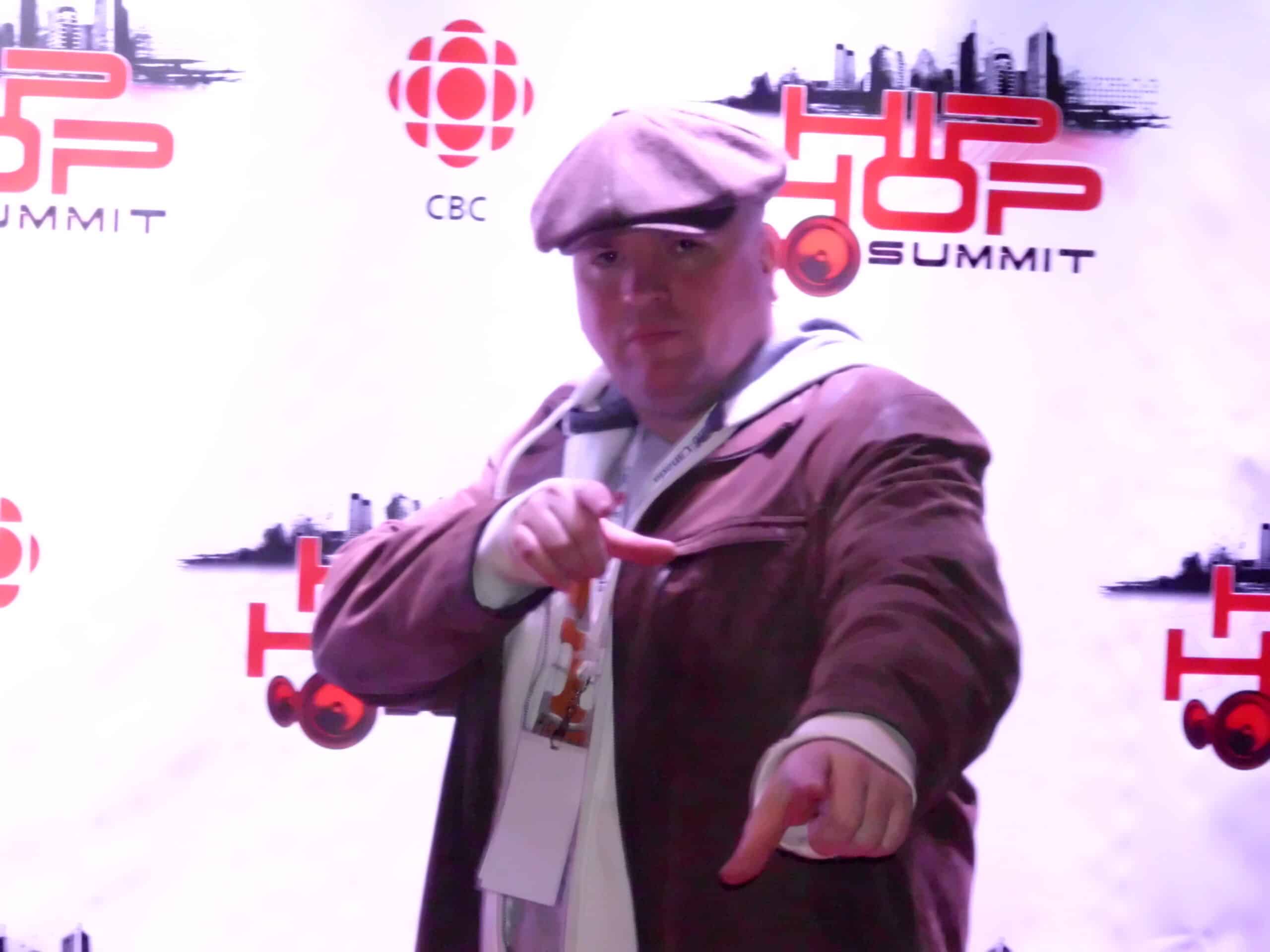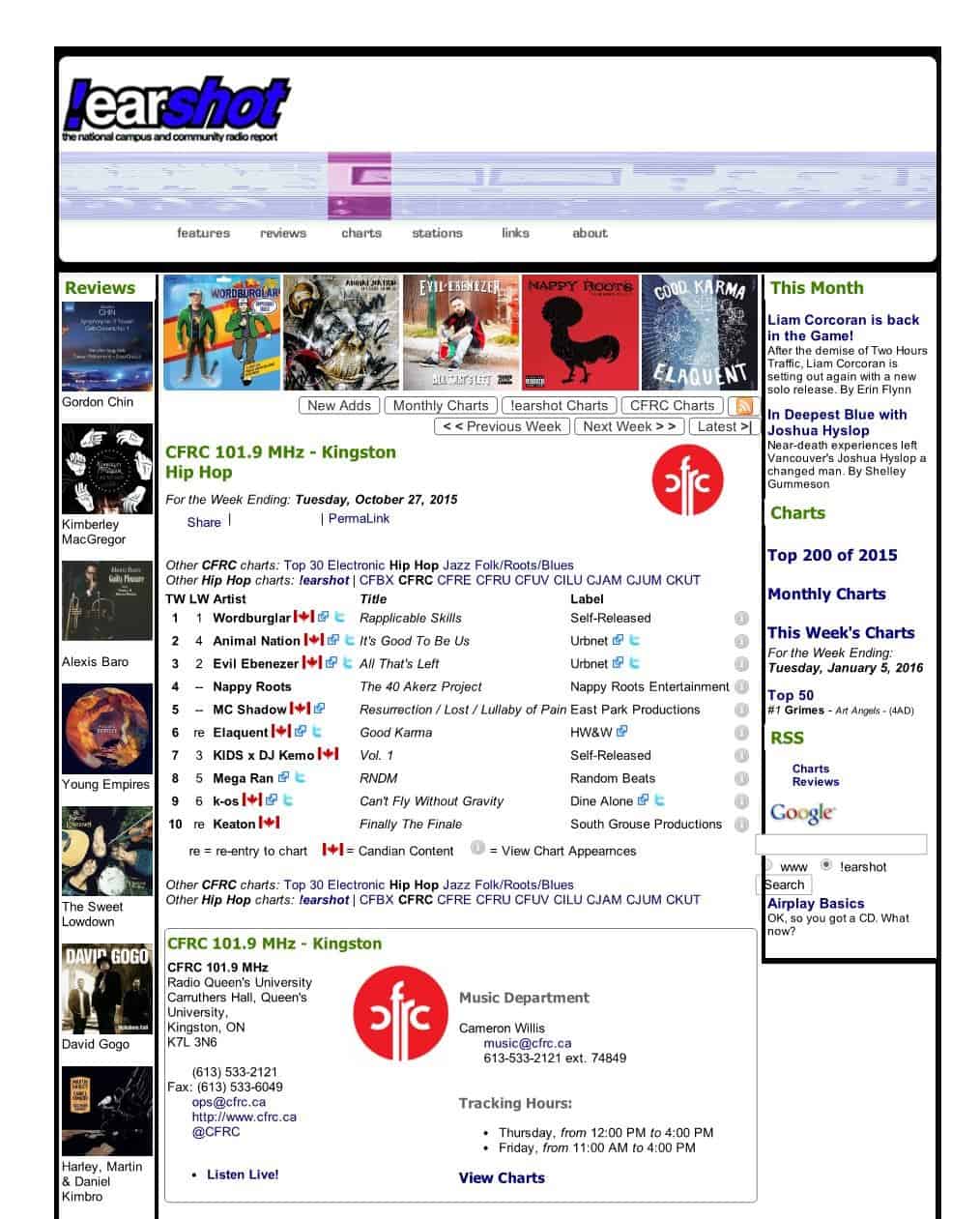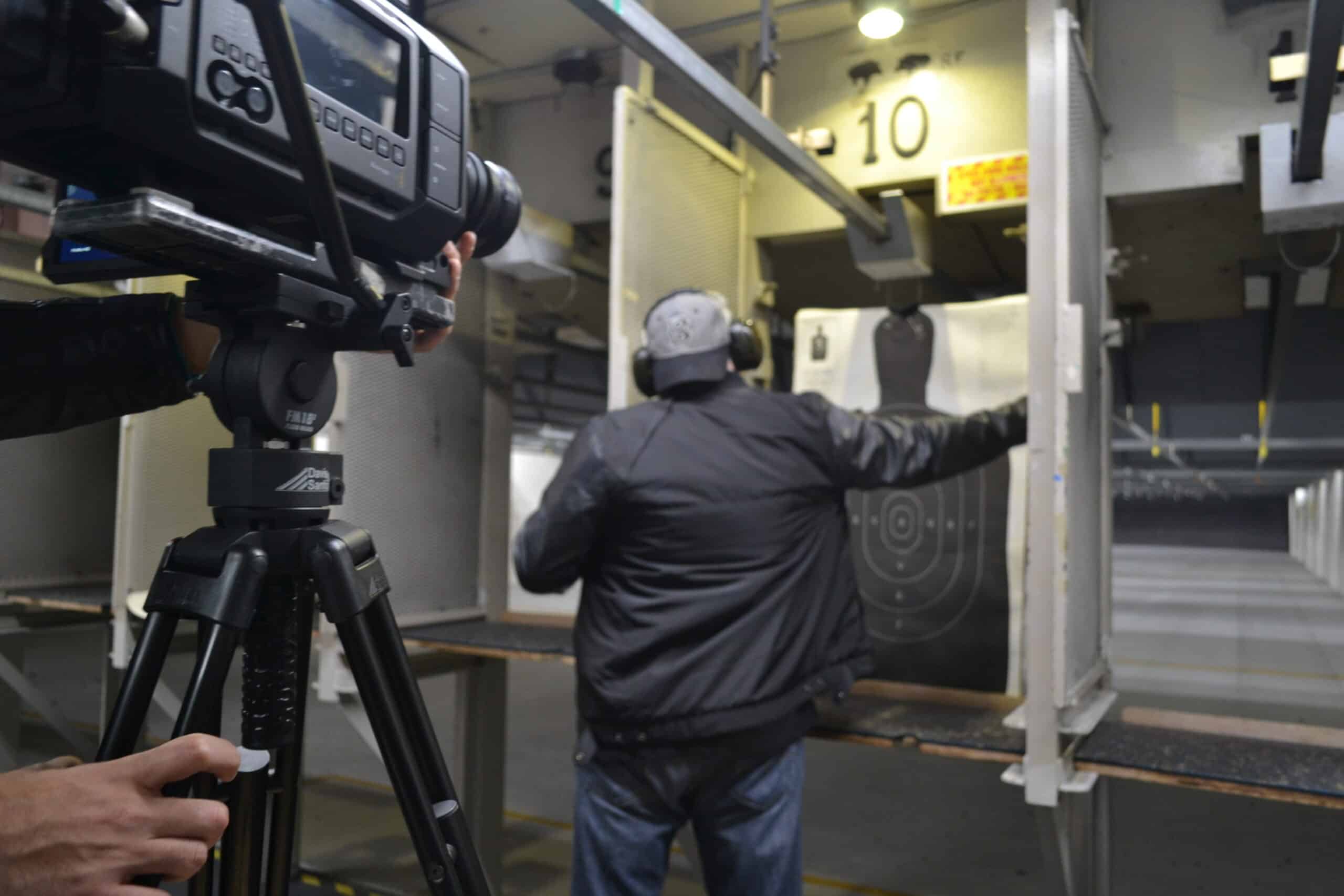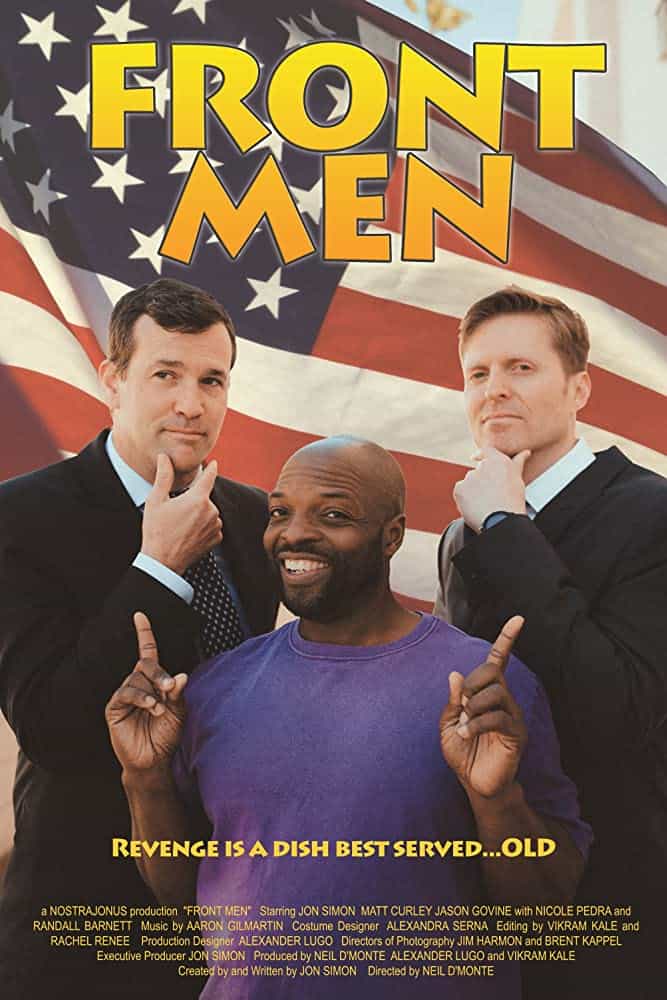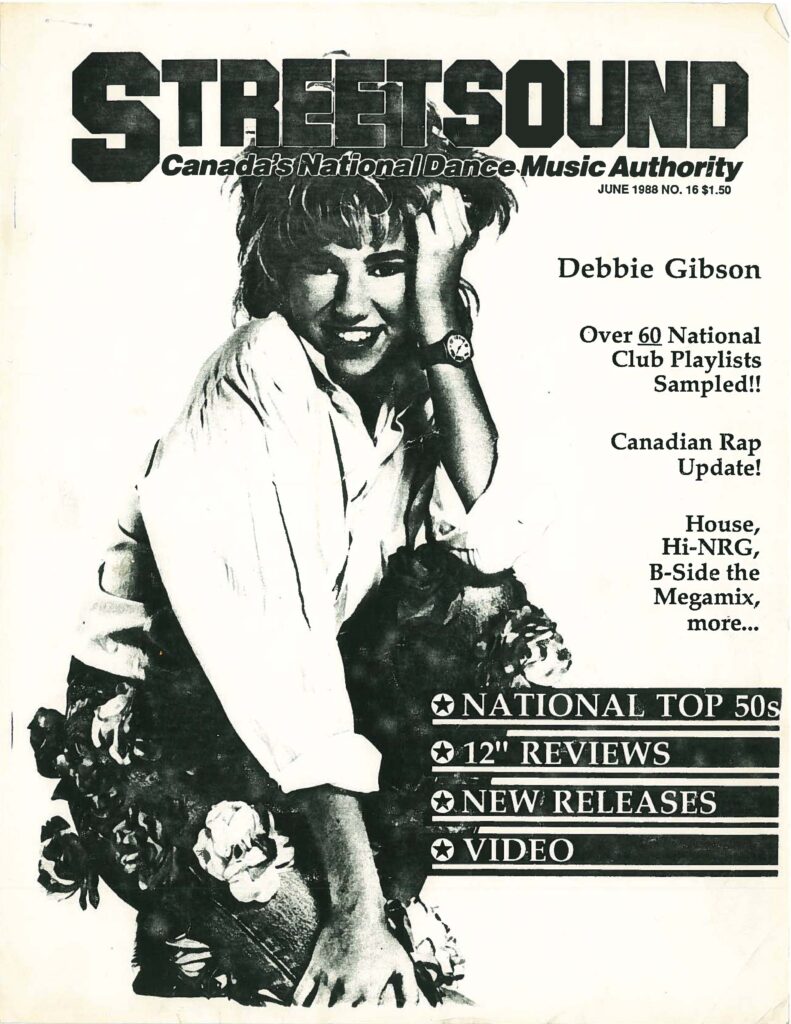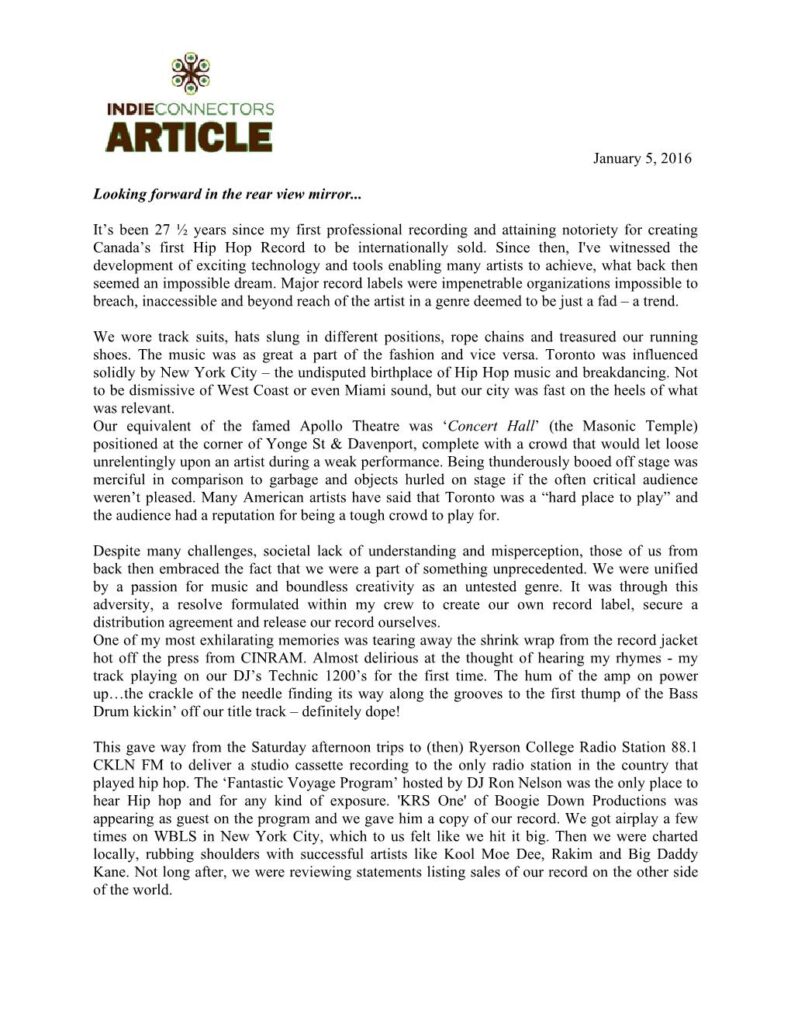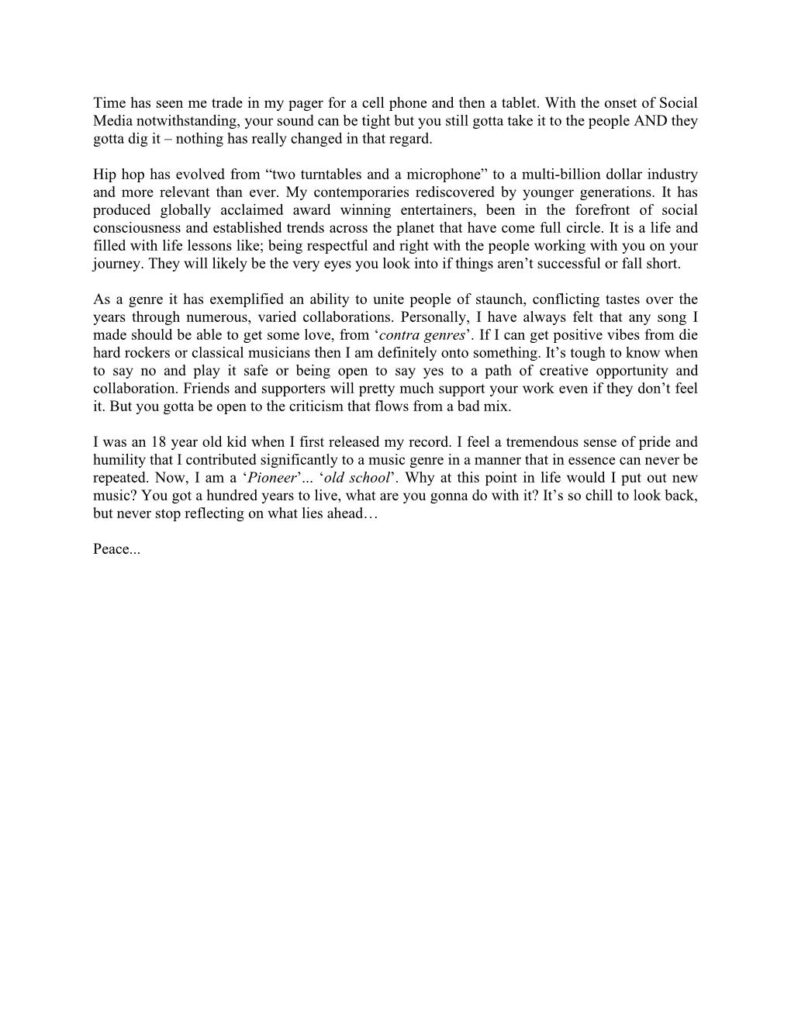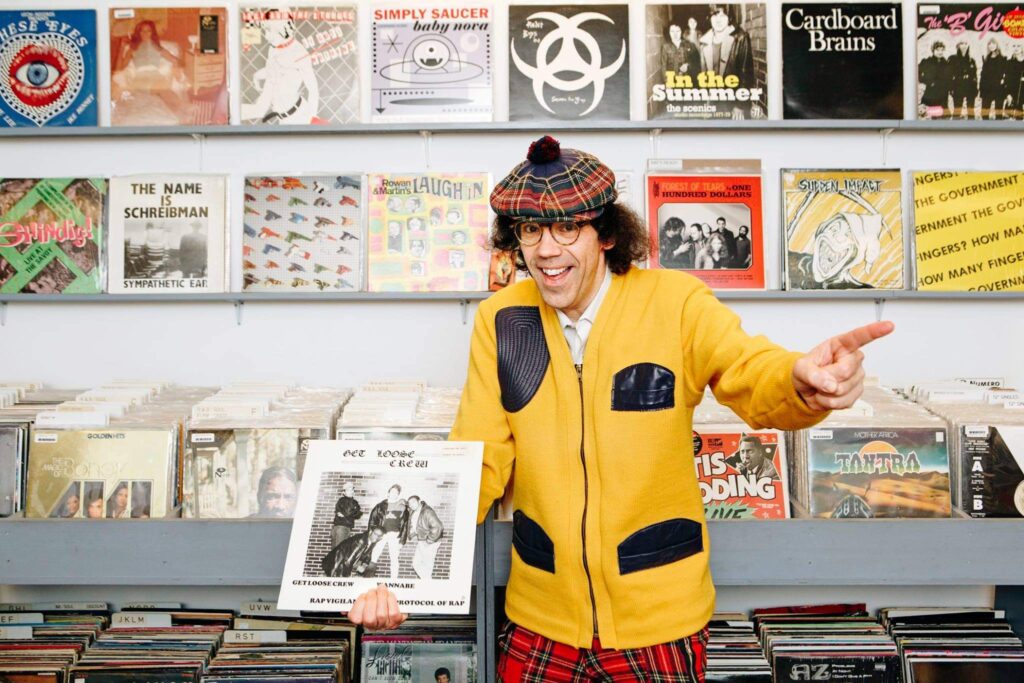GET LOOSE CREW
1986 - 1988
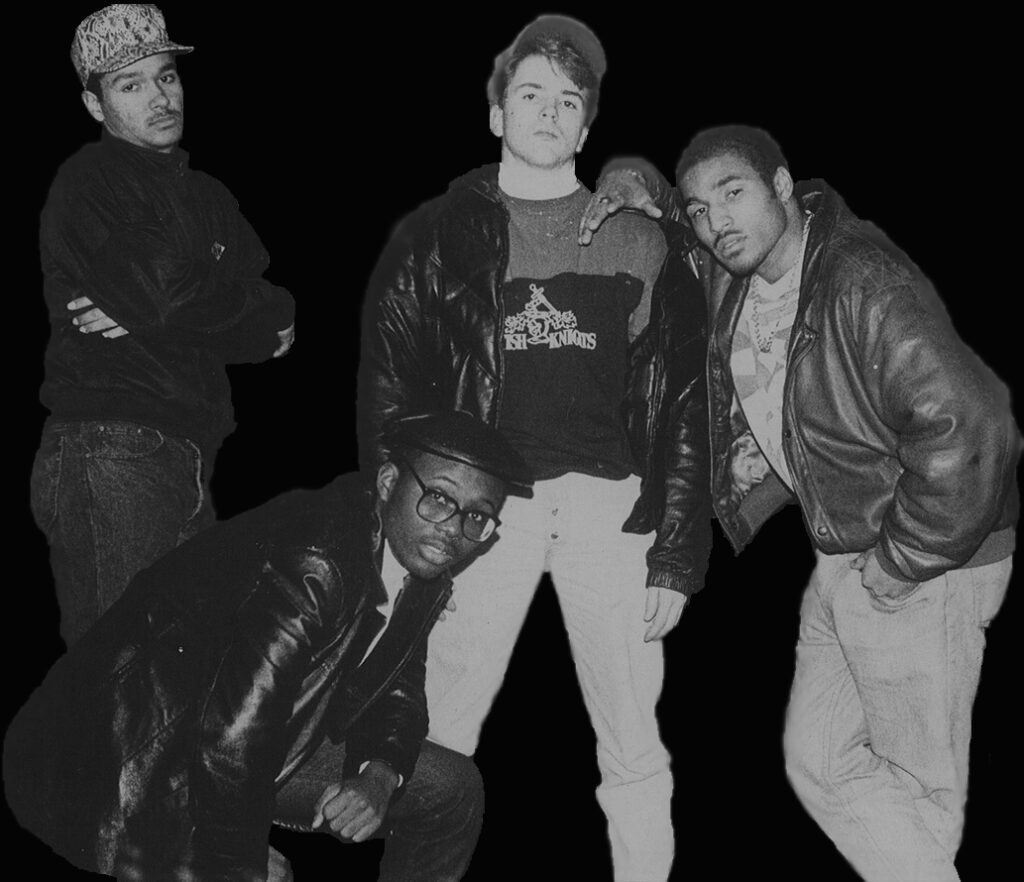
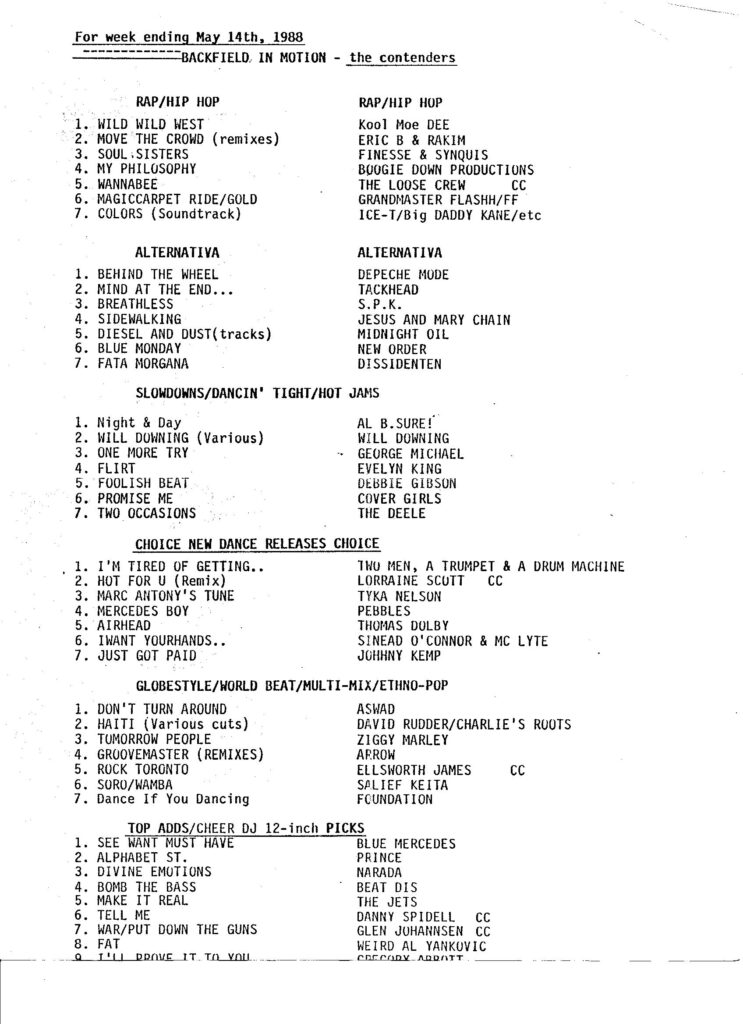
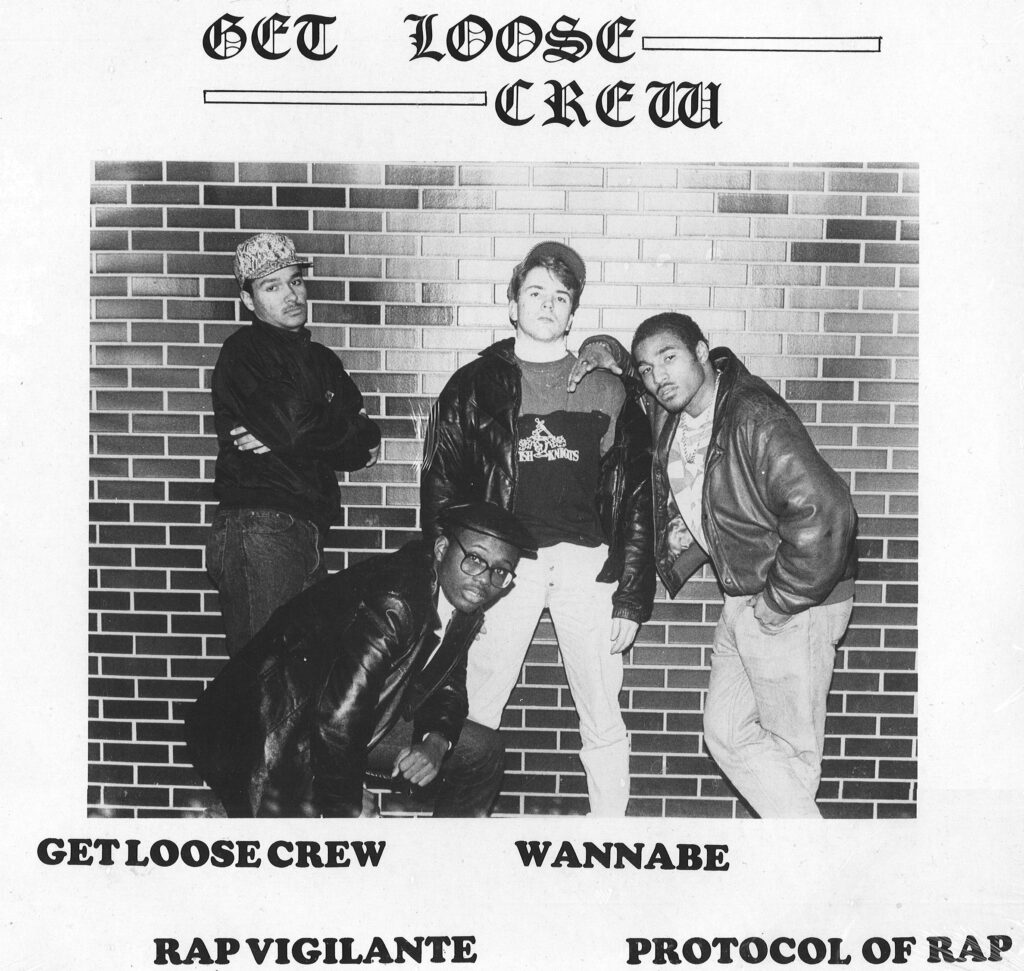
As an established local underground rap artist MC Shadow continued recording demo tapes with the Get Loose Crew and submitting to major record labels in the hopes of securing a record deal. With only one small Canadian Hip Hop record label (Beat Factory) in existence, the slim prospect of joining that roster coupled with the Industry’s position to not sign artists of the hip hop genre, they opted to form their own, and second independent Hip Hop record label in Toronto and Canada ‘East Park Productions’.
The project being entirely funded by themselves, the group recorded 4 songs for release on a mini-album, EP (extended play) with the plan for a follow up full length LP.
Carl Badwa (‘MC B’ aka B Kool aka Don Carlito) joined the group just prior to the release. To prevent a delay of the album release by re-recording the entire project to date; to include him they dropped an existing song and added a newly recorded single track (Wannabe) to include him on the album.
After several delays with the manufacturing of the album, the record finally hit store shelves in Toronto, in March 1988.
This work confirmed MC Shadow as the first recorded white hip hop artist in Canada and potentially globally, only after American Def Jam Records artists The Beastie Boys release of their first hip hop recording, Cooky Puss in 1984. Debate among historians in the Hip-Hop community suggest that while the American group had released their rap recording years earlier, their origins as a punk music band are different than Shadow. In contrast, his beginnings were that of originally being a hip-hop artist and regarded as the first white hip hop artist. The relevancy of this discussion is simply due to the rarity of white rappers in the history of this established African American genre.
Charting: May 1988, Urban music record chart ‘CHEER’ Backfield in motion, listed the Get Loose Crew song “WANNABE” in 5th spot among industry icons Kool Moe Dee – Wild Wild West at #1, Eric B & Rakim – Move the crowd #2, Boogie Down Productions – My Philosophy in 3rd spot, Grandmaster Flash and the Furious Five – Magic Carpet Ride # 6 and finally, television & movie star ICE-T & Big Daddy Kane – Colors Soundtrack for the 1988 film (same name) at # 7. The Cheer DJ Pool is a nationally acclaimed organization of disc jockeys which has been in existence for over 20 years. The membership of the pool has dedicated itself to serving not only the musical diversity of the community, but its cultural diversity as well.
CHEER Music Pool served as a Canadian national music chart as supplied by the Cheer DJ Pool of Toronto and was founded by music historian Daniel Calderon. Contributing to the authenticity of the Pool of contributors, members of the Pool have various ethnic backgrounds, including members from South Africa, Portugal, Italy, Asia, Philippines, Angola, to name but a few.
The Cheer Pool membership supported the SHARE FM application for a new urban/dance radio station and based upon its expertise participated in the proceedings February 9, 200 in Toronto.
Media support and interest; aside from appearances on the ‘Fantastic Voyage Program’ and various other College Radio Stations, included a feature interview on CBC’s (Canadian Broadcast Corporation) Television show ‘Switchback’. During the interview with Host Eric Tunney, (Shadow serving as the group’s spokesman) they discussed the emerging music genre sweeping the nation.
Another interview featured the group in the national music publication STREETSOUND magazine in June 1988, where once again the attention was on the early Canadian rap scene, its perceived violence, and the importance of the group’s performances. Neely commented: “When people come to a show, they’re critical. They come to see a performance. It’s got to be rockin’ from beginning to end. It has to be an organized performance, unlike four years ago, when everybody would just jam. No fighting, no chain snatching, no B-Boy destruction”.
Performing at Concert Hall – Masonic Temple (888 Yonge St. Toronto) which is regarded as the temple for Canadian Hip Hop performances is what Shadow is most unequivocal about. “You weren’t legit unless you performed at Concert Hall”. “It was a tough crowd, people got booed off stage and bottles thrown at them. If you were wack, people let you know it – right there”.
At this time Toronto served as the epicenter of Canadian hip hop music and hosted rap battles (dubbed Monster Jams) with established US performers. In 1988 the rap battles changed from primarily NYC artists and expanded to invite talents from other US cities. A local promoter involved in the events and in particular a pending “Philadelphia vs. Toronto Battle, proposed a contest (to the management team) between Fresh Prince (Will Smith) and MC Shadow. The invitation was declined by Smith’s management team in part based upon the successful launch of his, then recent, album release ‘Parents Don’t Understand’.
The group eventually disbanded in the fall of 1989. Neely teamed up with former Get Loose Crew member Carl Badwa (aka MC B, B Kool, Carlito) as a rap duo Double Trouble. The two worked on preproduction material and song writing including tracks titled “Above the rest” and “Freelancin”. Despite several studio sessions, recording was not fully completed and prior to any release the duo separated to pursue solo efforts.
After the split with MC B, Shadow recorded with DJ Jel (Chris Jackson) as his producer for unreleased titles Gangsta Who and the remixed hip hop version of (What I’m Sayin released in 1994) It’s What I’m Sayin (October 10, 1990), which is sampled with various James Brown songs. They produced several unreleased titles; My Message (October 10, 1990), Get With The Program (October 10, 1990), Promises Promises (October 10, 1990), Make it Funky (October 10, 1990), Step into the Darkside (October 14, 1990), Check Ya Balance (November 7, 1990), and Smooth Criminal (November 14, 1990). A Christmas song titled Frosty the Hitman was written and abandoned in pre-production.
